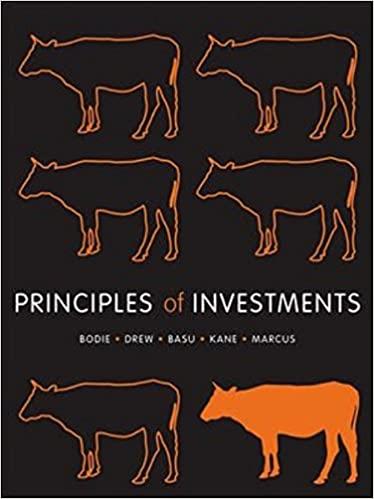Question
3. Convertible bonds, warrants, and other exotic bond features As the name suggests, convertible bonds allow the owner the option to convert the bonds into
3. Convertible bonds, warrants, and other exotic bond features
As the name suggests, convertible bonds allow the owner the option to convert the bonds into a fixed number of shares of common stock.
Which of the following best describes the difference between a convertible bond and a warrant?
Convertible bonds give the investor the option to buy shares at a certain price, whereas warrants give the investor the option to exchange bonds for shares at a certain price.
Convertible bonds give the investor the option to exchange bonds for shares at a certain price, whereas warrants give the investor the option to buy shares at a certain price.
Consider the case of an investor, Nazim:
Nazim wants to include putable bonds in his investment portfolio. Nazim is likely to put the bonds when:
He is in need of cash.
He expects to use the cash when the bond matures.
Nazim also recently bought bonds with a clause stating that interest will be paid based on the inflation rate. When the inflation rate increases, the interest on the bonds will also increase. Nazim has invested in .
Step by Step Solution
There are 3 Steps involved in it
Step: 1

Get Instant Access to Expert-Tailored Solutions
See step-by-step solutions with expert insights and AI powered tools for academic success
Step: 2

Step: 3

Ace Your Homework with AI
Get the answers you need in no time with our AI-driven, step-by-step assistance
Get Started


